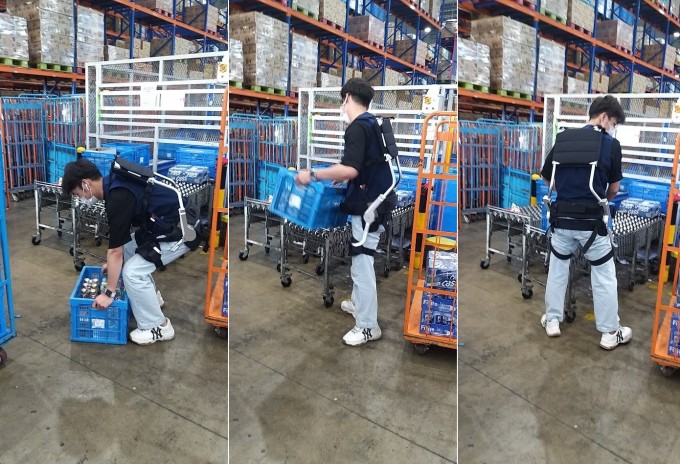
Industrial wearables, which help workers who work in the warehouses to lift heavy loads lightly, were sold for the first time in Korea.
EXO Atlet Asia, a wearable Robots development company, announced on the 11th that it will sell 20 wearable Robots 'Exa-W' through the Korea Robots Industry Promotion Agency, Choyang International Logistics and the 'Logistics Warehouse Utilization Project of Labor-intensive Workers' Muscle Wearable Robots'. This is the first time that industrial wearables have been sold in Korea and used on the spot. Hyundai Motor and others have developed and used wearables, but there have been no sales cases.
A total of 20 wearable Robots were put into Pyeongtaek and Cheongju logistics warehouses in Choyang International Logistics on the 10th and 11th of this month. The goal of this utilization project is to reduce worker fatigue and increase work efficiency by supplying industrial wearables. The company plans to carry out additional projects through user feedback through the demonstration project for four months from this month.
The Exa-W, sold by EXO AtletAsia, is a robot that does not use a motor, and it does not need power. It is designed to prevent problems even if you lift up to 1 million times. The Robots, which were supplied this time, are designed to support a total of 12kg weights, 6kg on the left and right. The Robots themselves weigh 4.1kg. “There are some things that help us with our strength, but the purpose is to reduce the burden on the back and musculoskeletal system of labor-intensive workers and reduce industrial accidents and diseases,” said an EXO AtletA official.
“The logistics business is labor-intensive, and the work environment for workers working in the field has been considered to be improved,” said Kim Sung-woo, CEO of Choyang International Logistics. “The low rate of workers working in the upper and lower levels of work, but we expect the Robots demonstration project to increase the rate of service and increase their professionalism.”
The price per unit is 4 million won. “The project has cost 4 million won per robot, but we aim to reduce costs by more than 30 percent by increasing the volume,” said an official at EXO AtletAsia.